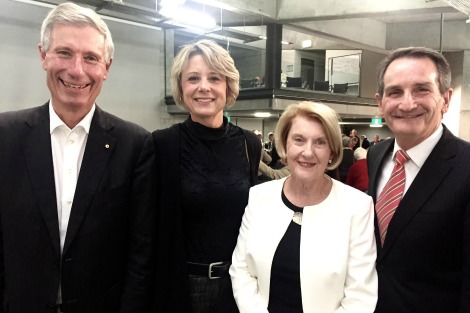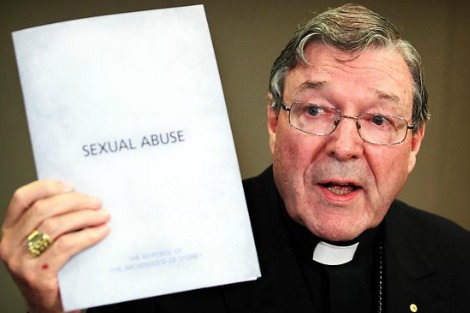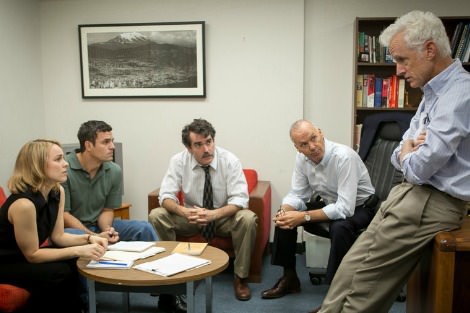Keywords: Francis Sullivan
-

RELIGION
- John Warhurst
- 23 May 2017
54 Comments
Catholics have a proud record of exercising their democratic rights within Australian democracy as voters, members of political parties and lobby groups, and as elected representatives. But within their own church they have been taught to leave their democratic rights at the door. Now is the time to challenge that norm in parishes, dioceses and the wider church. In responding to the royal commission the church needs an infusion of democratic values, including transparency and accountability.
READ MORE 
-

RELIGION
- Frank Brennan
- 08 May 2017
1 Comment
Our Church is presently a strained, outdated social institution with an exclusively male hierarchy and clergy. But it is also the privileged locus for us to be called to the banquet of the Lord sharing theology and sacrament which have sustained the hearts and minds of similar pilgrims for two millennia. Thank God for Pope Francis who is showing us the way, helping us to find meaning in our changing and chaotic world, putting a fresh spring in the step of all those Catholics holding in tension the prophetic and the practical, the theological and the humanist, the tradition and the contemporary reality.
READ MORE
-

RELIGION
- Frank Brennan
- 17 February 2017
3 Comments
The commission's forensic scrutiny of past actions of church officials in no way constitutes an interference with the freedom of religion. Its spotlight is to be welcomed, provided only that it is shone on a truly representative sample of all institutions which have been found wanting and provided the same light filter is applied to all institutions. I do however have a problem with the commission making findings on issues like the want of compassion when those findings are made only against a Church.
READ MORE
-

RELIGION
- Frank Brennan
- 13 February 2017
74 Comments
Last Monday, the Royal Commission commenced its three-week forensic examination of the causes of child sexual abuse and cover up in the Catholic Church in Australia over the last 60 years. The statistics were horrifying. Every case represented a person who claims as a child to have been abused by a person of authority in a Catholic institution. Whichever way the statistics are interpreted in comparison with other institutions, they are appalling. We need to hold the victims clearly in focus.
READ MORE 
-

RELIGION
- Francis Sullivan
- 08 November 2016
14 Comments
With all institutions taking part, this scheme will succeed and it will deliver fair, consistent and generous redress for survivors. If some institutions don't take part it will be yet another blow to abuse survivors, with some reaping the scheme's benefits while others are left to suffer further defeats and humiliations. A case in point is the South Australian government. Before the ink was dry on the announcement, SA had already indicated it would not take part. This is appalling, whatever the justification.
READ MORE 
-

ARTS AND CULTURE
- Richard Leonard
- 28 January 2016
18 Comments
This is one of the angriest films you will ever see. In the Bible we hear about righteous anger, where God or humanity realises something is so wrong and sinful that 'holy anger' is the first and right response. At its best in the scriptures this anger leads to justice, making things right. Spotlight is an occasion for holy, righteous anger and every adult Catholic should see it.
READ MORE 
-

RELIGION
- Moira Rayner
- 14 December 2015
48 Comments
There is a culture of brotherhood in the upper echelons of the Church. There is also a natural urge to homosocial reproduction in its instrumentalities. If I have learned anything from my work with companies and organisations on cultural change, it is that these comfortable cultures need to be broken up, because they are readily corrupted. The best way to change a culture is to start giving women positions of real influence and respect. They are outsiders, and outsiders see what insiders cannot.
READ MORE 
-

AUSTRALIA
- Frank Brennan
- 23 October 2015
4 Comments
Francis knows there are all sorts of issues inside and outside the Church where for too long people with power have tried to keep the lid on, in the hope that the problems and complexities will go away, often by parodying those who see the problems or complexities as small 'l' liberals or cafeteria Catholics. He delights in being joyful and troubled while contemplating big problems, calling people of good will to the table of deliberation reminding them of the kernel of the Christian gospels. He has the faith and hope needed to lift the lid without fear and without knowing the answers prior to the dialogue occurring.
READ MORE
-

- Frank Brennan
- 04 June 2015
23 Comments
As we await Cardinal Pell's appearance before the Royal Commission, many Australians are baying for his blood. It is time for those of us in the Church to stop paying undue deference to those who exercise ecclesiastical power in a fashion at odds with contemporary notions of transparency and equality. It's also time for all commentators to play the ball, and not the man.
READ MORE
-

RELIGION
- Geraldine Doogue
- 14 January 2014
13 Comments
I wish he would invite me to be his temporary consultant, to offer him advice for his next 500 days. I'd begin by proposing a substantial Vatican-led inquiry, into why the Church has been so troubled by sexual abuse across various countries. Then I would point to the experiences of several large secular institutions, including the New York Times and US Army, that have rebuilt after crises.
READ MORE 
-

RELIGION
- Geraldine Doogue
- 24 September 2013
35 Comments
I wish he would invite me to be his temporary consultant, to offer him advice for his next 500 days. I'd begin by proposing a substantial Vatican-led inquiry, into why the Church has been so troubled by sexual abuse across various countries. Then I would point to the experiences of several large secular institutions, including the New York Times and US Army, that have rebuilt after crises.
READ MORE 
-

AUSTRALIA
- Michael Mullins
- 13 May 2013
42 Comments
Victims of church sexual abuse have suffered a setback with NSW Government moves to impose a ten year statute of limitations. For many victims, it takes much longer than ten years before they are ready to tell their story. If they are forced to speak before they are ready, they may speak half-truths or not speak at all.
READ MORE 